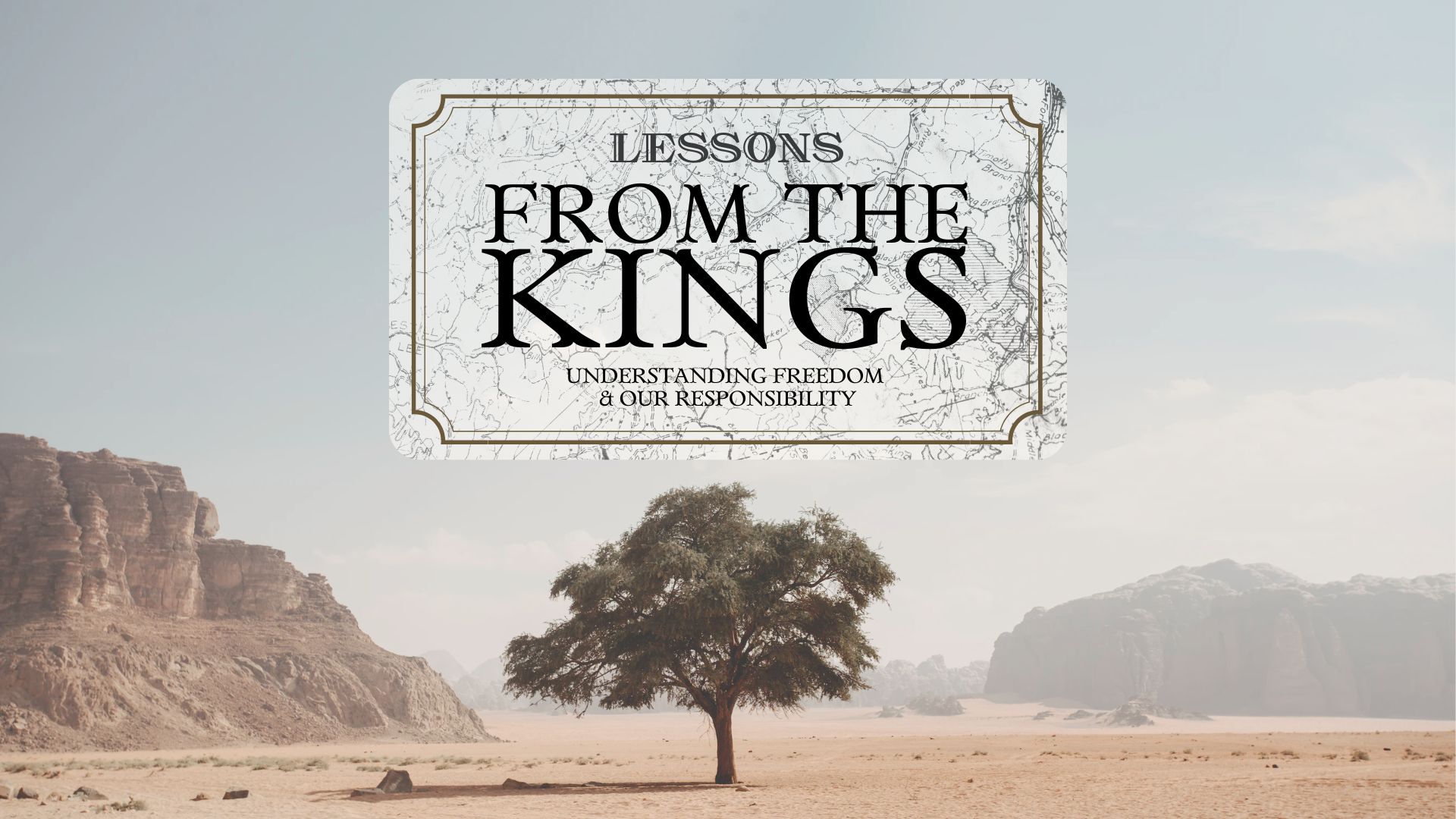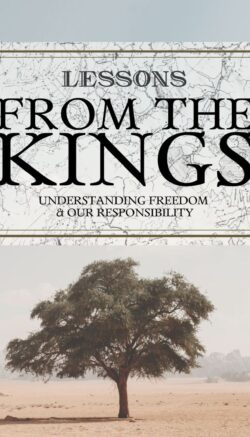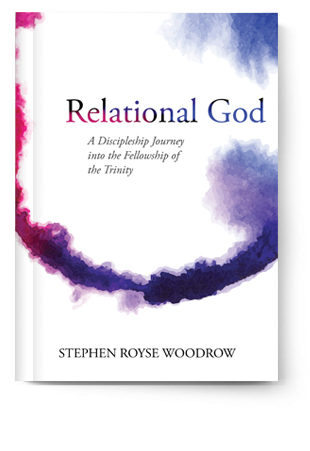 Open up with 2 Corinthians 11:3-4
Open up with 2 Corinthians 11:3-4
The importance of nurturing and maintaining a “sincere and pure devotion to Christ”
Is there another Jesus being proclaimed today?
Are people receiving a different spirit today?
Are people accepting a different Gospel today?
What we need restored is a sincere and pure devotion to Jesus!
Read 1 Kings 13
There is something prophetic about 1 Kings 13 as far as the big picture as well, the importance of obeying God wholeheartedly not compromising as what both Israel and Judah eventually did. But how does this look today and in the NT.
Does God overlook compromise or half hearted devotion today because of the cross and resurrection?
The result is the same it will eventually lead to a corrupt Christianity which is false and bring about judgment and discipline upon future generations.
The great commandment is still the same as the OT to love the Lord with all heart, soul, mind, and strength.
So we know the battle is going to be against the pursuit of wholeheartedness.
Basically, 1 Kings 13 continues the book’s emphases on proper worship, the prophetic word, and the slow demise of the covenant people. It also begins to analyze the difference between true and false prophecy.
House, P. R. (1995). 1, 2 Kings (Vol. 8, pp. 187–188). Broadman & Holman Publishers.
If you see a lion, donkey standing next to a dead body – that is going to get your attention – something supernatural spiritual and prophetic is going on here.
LESSON SIXTEEN
Verses:1 Kings 13; 2 Kings 23; Amos 3:7; 1 Corinthians 1:18-25
God is gracious and just, judging and disciplining the compromising faith of His children and confounding the wisdom and power of the world, while fulfilling His grand plan of salvation through the words of His prophets.
What this tells us about God – The lion represents God’s ways, he is dangerous but good, just and loving, will discipline those He loves, lion of the tribe of Judah. The sovereign plans and prophecies of God are true and have and will be fulfilled.
As westerners we are uncomfortable with prophetic ministry and being spiritually aware and that God may give us the Spirit of wisdom and revelation in the knowledge of Him.
Amos 3:7
“For the Lord God does nothing without revealing his secret to his servants the prophets.”
Like the man of God, 2 centuries later Amos went from the southern kingdom to the northern kingdom in Bethel to pronounce judgment on Jeroboam II. Amos 7:10-17
1 Corinthians 1:18-25
18 For the word of the cross is folly to those who are perishing, but to us who are being saved it is the power of God. 19 For it is written, “I will destroy the wisdom of the wise, and the discernment of the discerning I will thwart.” 20 Where is the one who is wise? Where is the scribe? Where is the debater of this age? Has not God made foolish the wisdom of the world? 21 For since, in the wisdom of God, the world did not know God through wisdom, it pleased God through the folly of what we preach to save those who believe. 22 For Jews demand signs and Greeks seek wisdom, 23 but we preach Christ crucified, a stumbling block to Jews and folly to Gentiles, 24 but to those who are called, both Jews and Greeks, Christ the power of God and the wisdom of God. 25 For the foolishness of God is wiser than men, and the weakness of God is stronger than men.
The fear of the Lord is the beginning of wisdom, Wisdom does not itself lead to the Lord. It is the Lord who gives wisdom through His Spirit. Wisdom without the Lord just fortifies the self.
Faith comes by hearing the Word of God,
LESSON SEVENTEEN
Verses: 1 Kings 13; 2 Kings 23; Deuteronomy 6:4; Matthew 22:36-40
Be wholehearted in devotion to the Lord, listen and obey the Word of God, for to compromise will eventually usher in a corrupt Christianity, which will bring the discipline and judgment of the Lord repeating the cycle of the Kings.
Main message – Be wholehearted in devotion to the Lord, listen and obey the Word of the Lord, to compromise will usher in false Christianity and sure judgement – wow what a message to the church today – our response should be reform like Josiah –
So what does serving the Lord with a whole heart like Josiah look like? 2 Kings 23:25, Deut 6, Matt 22 – and what can we learn from the man of God i 1 Kings 13 about serving wholeheartedly?
Revelation 2-3, those He loves He reproves, and disciplines, so we should be zealous and repent for He stands at the door and knocks.
What this tells us about ourselves – The Donkey, represents our response to God’s ways, whether wholehearted or compromising. The donkey is the vehicle or path of following God without compromise or compromising, donkey brought the prophet with a no compromising message, it left with the same prophet suffering consequences of compromising God’s Word. Jeroboam is an example of compromising, Josiah is an example of wholeheartedness.
We have responsibility to guide the donkey in the right our wrong direction, this can be our life, our family, our church our nation. The lion does not tear up the donkey – he allows us to choose.
What we can learn from Jeroboam:
Jeroboam wants to manipulate the prophet for his own political means, wants to be seen as true and in unity with true prophets by pulling together the true into the false whereby corrupting the true –
Jeroboam is a blend of king and false priest taking the role of priest, what about today when gov steps into places that only priests should be? Do we have responsibility to speak to church and the nation? Only if called, and we can see in the end there will be increase in prophetic ministry – during different times the prophetic word of the Lord is more active then others:
Jeroboam tried through power and bribe to bring the prophet and his power under his influence for political reasons;
Jeroboam did not turn to the Lord, but pressed in further into false religion.
Jeroboam attempts to stop the prophet and thus also to obliterate the word of God. But Jeroboam finds that he cannot withstand God’s prophet. As Keil notes, “Thus Jeroboam experienced in the limbs of his own body the severity of the threatened judgment of God.”
Now Jeroboam changes tactics. He first begs the man of God to intercede for his withered hand, which the prophet does, and the hand is restored. This second miracle reaffirms the prophet’s authenticity and demonstrates God’s grace. Next, the king attempts to win the prophet’s favor by offering him food and a gift. His offer is refused because God has told him not to eat in Bethel or return the way he came. Prophets must not be for sale, nor should they tread the path everyone else walks. U. Simon demonstrates that “not to return by the way you came” is a fairly common Old Testament way of saying “be different” or “avoid past mistakes.”
House, P. R. (1995). 1, 2 Kings (Vol. 8, pp. 188–189). Broadman & Holman Publishers.
Not even a string of miracles deters Jeroboam from his path to idolatry. He still sanctions high places, non-Levitical priests, and non-Mosaic-inspired sacrifices. The narrator explains Jeroboam’s downfall according to Ahijah’s warning in 11:38 and the judgment following in chap. 14 (esp. vv. 11–12). Jeroboam’s religious heterodoxy leads to his dynasty’s destruction.
House, P. R. (1995). 1, 2 Kings (Vol. 8, p. 189). Broadman & Holman Publishers.
Don’t fall to the lie, that if you saw miracles and supernatural stuff that you would then be wholehearted in your devotion to the Lord.
What we can learn from the Bethel prophet:
Lessons from old prophet in Bethel, he grew old in Bethel, where worship was corrupted what was his motive? did he genuinely desire long for God’s voice/power,I think so but he tried to get it from manipulation rather than seeking the Lord and renewal
The old Bethel prophet sees God’s power and revelation, which he had not seen, maybe ever and wants to align with it, knowing the prophecy will come true, it was an act of faith to buy the man of God in his tomb.
an angel spake unto me by the word of the Lord—This circuitous mode of speaking, instead of simply saying, “the Lord spake to me,” was adopted to hide an equivocation, to conceal a double meaning—an inferior sense given to the word “angel”—to offer a seemingly superior authority to persuade the prophet, while really the authority was secretly known to the speaker to be inferior. The “angel,” that is, “messenger,” was his own sons, who were worshippers, perhaps priests, at Beth-el. As this man was governed by self-interest, and wished to curry favor with the king (whose purpose to adhere to his religious polity, he feared, might be shaken by the portents that had occurred), his hastening after the prophet of Judah, the deception he practised, and the urgent invitation by which, on the ground of a falsehood, he prevailed on the too facile man of God to accompany him back to his house in Beth-el, were to create an impression in the king’s mind that he was an impostor, who acted in opposition to his own statement.
Jamieson, R., Fausset, A. R., & Brown, D. (1997). Commentary Critical and Explanatory on the Whole Bible (Vol. 1, p. 222). Logos Research Systems, Inc.
Increased prophetic activity is attested at special times of tension among God’s people (e.g. Elijah Elisha, the birth of Christ, the early days of the church, etc.). It aims to heighten awareness of God’s word and the inevitable consequences of rejecting it. An unrepentant Jeroboam (cf. 13:33–34) hears from a man of God from Judah (13:1–10), a prophet from Bethel (13:11–32) and Ahijah the prophet, who reiterates a former warning (14:1–18). These episodes are commonly interpreted as a clash between the true prophet (‘man of God’) from Judah and the false prophet (and cult) at Bethel. Others see here ‘the first extensive case of Midrash in the historical books’ (Montgomery), that is, a homiletic commentary on Scripture using allegory and legendary illustrations. Yet it cannot be denied that we have here a unified story from which spiritual lessons may be learned in every generation. It shows that despite an unjustified claim to have the word of God, even a false prophet can be used (vv. 18–19; cf. Balaam, Num. 22–23) to pronounce punishment on an evil and upon a disobedient man of God (vv. 20–32). Others find here a prophetic conflict in which the voice of Judah is unheeded by the north and the faithful oppose a disobedient prophet. Since the only Judean witness to these events was killed (v. 24), the story may have been preserved at Bethel.
Wiseman, D. J. (1993). 1 and 2 Kings: an introduction and commentary (Vol. 9, p. 156). InterVarsity Press.
What we can learn from the man of God:
It appears the man of God was commanded to fast during this whole mission even from water, so he was weak and let his guard down: man of God resting under the oak, hungry thirsty and vulnerable to false spiritual attack, the man of God is a picture of partial obedience which Israel had been flirting with:
Lessons from the man of God, The greater the revelation the greater the responsibility and we could add judgment, James 3:1, importance of being wholehearted and obeying the whole Word of God, God has his people, He is always raising up His prophets, Amos 3:7, the confounds the wisdom of the wise and this is worked out in the ways of the Spirit.
Lions were attested in Palestine until at least the thirteenth century ad. It would be taken as a sign of the man of God’s status that the lion neither further mauled his body nor touched the donkey.
30. The family tomb at Bethel was still recognized three hundred years later (2 Kgs 23:17). The Bethel prophet may have wished for kudos in being associated with an attested man of God, or wanted to mark the unity of the prophets of Israel and Judah (Jones, Wurthwein). For the existence of Samaria as a known location before the city was named after it, see 1 Kings 16:24.
Wiseman, D. J. (1993). 1 and 2 Kings: an introduction and commentary (Vol. 9, pp. 158–159). InterVarsity Press.
If the man of God were to make an agreement or show fellowship (‘eat bread’, vv. 7, 18) with the king, that would have been tantamount to a withdrawal of judgment. The king’s motive could have been ‘to link himself in fellowship with him as a form of insurance’ (Robinson, p. 161; cf. Noth, p. 298), and so to seek for the prophet’s endorsement of his new royal position. The ban on the return route might serve to avoid further contact with a cursed place and people.
Wiseman, D. J. (1993). 1 and 2 Kings: an introduction and commentary (Vol. 9, p. 158). InterVarsity Press.
The prophet presents a message with three implications. First, he cries out “against the altar,” presumably because it has no legitimacy in God’s eyes. Second, he predicts a descendant of David named Josiah will someday defile the altar. This declaration suggests the eventual demise of Jeroboam’s dynasty and the Northern Kingdom’s loss of sovereignty. Third, he offers a sign to authenticate his message: the altar “will be split apart, and the ashes on it will be poured out.” All of these implications are told without introduction and with stunning swiftness. God has denounced Jeroboam’s brand of religion and announced Jeroboam’s failure to receive the promises God had made him in 11:38. In doing so he predicts by name the rise of a king who is born almost three centuries after this account occurs. This feat is paralleled in the Old Testament only by Isaiah’s eighth-century b.c. prediction of the career of the sixth-century b.c. Persian ruler Cyrus (Isa 44:28; 45:1, 13).
House, P. R. (1995). 1, 2 Kings (Vol. 8, p. 188). Broadman & Holman Publishers.
What we can learn from Josiah:
Make a note, this records a prophecy that does not come to pass for 300 years, we don’t even think like that today with a big view resting in God’s timing once day is as a thousand
2 Kings 23:15-
In the midst of the Bethel cleansing, Josiah removes bones from priestly graves (2 Chr 34:5) and burns them on the altar to defile it. This desecration fulfills the prophecy made by the unnamed prophet of 1 Kings 13 (cf. 1 Kgs 13:1–13) who lived during Jeroboam I’s reign (ca. 930–909 b.c.). Three centuries have passed, but God’s word comes true because it cannot fail. This episode is but the latest example of the author’s emphasis on the truthfulness of the prophetic utterances.
House, P. R. (1995). 1, 2 Kings (Vol. 8, p. 389). Broadman & Holman Publishers.
Sadly, Josiah acts as Judah’s last righteous king, and his death must have come as a great shock to his followers. The Lord’s decision to judge Judah does not change. Huldah’s words will come true. Any questions about the justness of this eventuality are answered by the future. The people revert to the worst parts of their past rather than continue in Josiah’s ways. National suicide has been averted for a time by the sheer determination of the king and prophets, but the people go back to their old habits as soon as Josiah dies.
House, P. R. (1995). 1, 2 Kings (Vol. 8, p. 391). Broadman & Holman Publishers.
Behold, a child shall be born … Josiah by name—This is one of the most remarkable prophecies recorded in the Scriptures; and, in its clearness, circumstantial minuteness, and exact prediction of an event that took place three hundred sixty years later, it stands in striking contrast to the obscure and ambiguous oracles of the heathen. Being publicly uttered, it must have been well known to the people; and every Jew who lived at the accomplishment of the event must have been convinced of the truth of a religion connected with such a prophecy as this. A present sign was given of the remote event predicted, in a visible fissure being miraculously made on the altar. Incensed at the man’s license of speech, Jeroboam stretched out his hand and ordered his attendants to seize the bold intruder. That moment the king’s arm became stiff and motionless, and the altar split asunder, so that the fire and ashes fell on the floor. Overawed by the effects of his impiety, Jeroboam besought the prophet’s prayer. His request was acceded to, and the hand was restored to its healthy state. Jeroboam was artful, and invited the prophet to the royal table, not to do him honor or show his gratitude for the restoration of his hand, but to win, by his courtesy and liberal hospitality, a person whom he could not crush by his power. But the prophet informed him of a divine injunction expressly prohibiting him from all social intercourse with any in the place, as well as from returning the same way. The prohibition not to eat or drink in Beth-el was because all the people had become apostates from the true religion, and the reason he was not allowed to return the same way was lest he should be recognized by any whom he had seen in going.
Matthew 22:36-40 (Deut. 6:4)
“36 “Teacher, which is the great commandment in the Law?” 37 And he said to him, “You shall love the Lord your God with all your heart and with all your soul and with all your mind. 38 This is the great and first commandment. 39 And a second is like it: You shall love your neighbor as yourself. 40 On these two commandments depend all the Law and the Prophets.”
LESSON EIGHTEEN
Verses: 1 Kings 13; 2 Kings 23; Deuteronomy 6:4; Matthew 22:36-40; Ephesians 1:7
The cycle of the Kings from wholehearted devotion to compromise will not end until Jesus returns, but until then, God has made provision through the Gospel of Jesus Christ for people of all nations to break the cycle of the Kings in their hearts through the power of the Holy Spirit so they can live as agents of renewal and hope.
What this tells us about the Good News of the Gospel – The dead body represents the consequences of a lack of wholeheartedness among God’s people, but with it the prophetic hope of a Josiah, a messiah, a Savior that will renew hearts. The results, Jeroboam even after direct supernatural encounter did not turn. The man of God suffered discipline of the Lord. And Josiah reigned in a renewal, but his son went right back to old evil ways. God is true to His word, His promises and will raise up a type of Josiah – Jesus who will fulfill and restore wholehearted worship of God not in Bethel or Jerusalem, but in people’s hearts through the Gospel.
When will the cycle of the Kings end? At the coming of Jesus and not until then.
2 kings 23:17, Josiah reform, Josiah a type of Jesus gospel reform- is the Lord in the process of reforming His church today? We still pray for healing and restoration for wayward people and churches, spiritual sensitivity and prophetic awareness,
For a body to lie unburied was a curse, hence the emphasis on detail of the place of burial. It was a disgrace to be buried away from the family among strangers (cf. 1:21).
Wiseman, D. J. (1993). 1 and 2 Kings: an introduction and commentary (Vol. 9, p. 158). InterVarsity Press.
Who are the priests and who are the prophets today – we are? Why are we struggling so today to embrace that responsibility?
Several important themes emerge from this text. First, God opposes idolatry, semi-idolatry, or any form of non-Mosaic religion. Religious pluralism for pluralism’s sake does not impress God. Second, the Lord shares his word with the prophets, who are then responsible for preaching it and keeping it. Third, it is important to discern whether a so-called word from the Lord is true or false prophecy. T. Dozeman thinks a prophecy may be tested by whether it is fulfilled (cf. Deut 18:22; 1 Kgs 13:5, 23–24), confirmed by other words or by signs (cf. 1 Kgs 13:20–22), or lived out with integrity by the prophet. D. W. Van Winkle agrees but adds the criterion of “obedience to the command of Yahweh.” By this he means that God changes circumstances when people repent, a principle the Lord announces from the outset of every promise (cf. 1 Kgs 8; 11:39), but that God is never “portrayed as instructing his prophets to encourage disobedience to his commandments.” The true prophet preaches fidelity to God’s word based on God’s merciful character. False prophets claim new, contradictory revelation and may even claim angelic guidance for doing so.
Fourth, God’s word will come true no matter what the circumstances. Jeroboam, the old prophet, and the man of God all learn this lesson in rather hard ways. In about three hundred years Josiah will be born and fulfill the prophet’s prediction. As Simon concludes, God’s word will come true “in its due time, having transcended the weakness of its bearer and converted its violators into confirmants.” Fifth, God’s word must be obeyed, whether or not it is attended by miracles. Jeroboam failed to believe when he saw wonders. On the other hand, the man of God failed to believe when he trusted the unusual over his personal convictions. It is the Lord’s instructions themselves that matter most. All else may be important yet remains peripheral to the main issue—God’s word. Sixth, Israel continues to march toward disaster. Jeroboam leads them astray, but they follow. By the time the promised Josiah arises, it will be too late for the north to follow his leadership.
House, P. R. (1995). 1, 2 Kings (Vol. 8, pp. 189–190). Broadman & Holman Publishers.
Ephesians 1:17
“that the God of our Lord Jesus Christ, the Father of glory, may give you the Spirit of wisdom and of revelation in the knowledge of him.”
Restoring a sincere and pure devotion to Jesus is the answer to everything! It is the answer!
0




